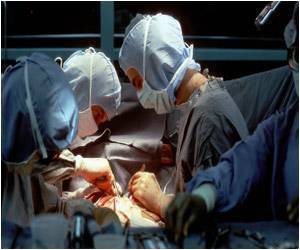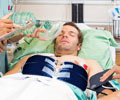Less is known about how the life of a cardiac survivor changes after cardiac arrest. The survivor experiences mental, physical and psychological disabilities after cardiac arrest.

The scientists collected data from the registry of inpatient cardiac arrests with Medicare files and enrolled 6972 cardiac arrest survivor adults about 65 years of age and above. They had in-hospital cardiac arrest during 2000-2008. The experts also examined rate of one-year survival and readmission in the hospital.
It was seen that about 58.5 percent of survivors were alive while 34.4 percent did not require readmission in the hospital. 'The risk-adjusted rate of 1-year survival was lower among older patients than among younger patients.'
The rate of one-year survival was 72.8 percent in patients with mild or no neurological disability at the time of discharge in contrast to 61.1 percent in patients with moderate neurological disability and about 42.2 percent in people with severe neurological disability. While patient who were in vegetative state or coma had 10.2 percent rate of one-year survival.
As far as the rate of readmission is concerned, the scientists noted that it was high in black females having some neurologic disability. The researchers said that the differences in the rates of survival and readmission lasted at two years and at third year, 'rate of survival among survivors of in-hospital cardiac arrest was similar to that of patients who had been hospitalized with heart failure and were discharged alive'.
The researchers finally concluded that about 60 percent of the elderly cardiac survivors were alive for one year and the three year survival rate was almost identical to the survival rate of heart failure. However the rate of readmission and survival vary in accordance with the demographic condition of the patient as well as the neurological status at the time of discharge.
Reference:
Source-Medindia















